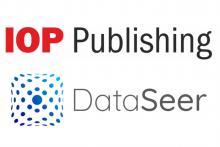Open Science Charter makes urgent appeal for open access

The Frontiers Research Foundation has launched an Open Science Charter, calling upon governments, research institutions and funders, the scientific community, and citizens everywhere to support mandatory open access to all publicly funded scientific knowledge by 2030.
The foundation stated: "The climate emergency poses an existential threat, demanding immediate and far-reaching actions. Our planet is edging closer to several irreversible tipping points, with dire consequences for all life. We need a wide spectrum of science solutions urgently and the greatest accelerator is simply to mandate open access to publicly funded articles and data.
"The current system restricts access to most of the scientific research not only to many scientists, but virtually all practitioners, innovators, and entrepreneurs in the world. The restrictions to access major breakthroughs in sustainability and climate sciences are even more severe. No one can afford such a block to knowledge that we all need to reverse and mitigate the effects of climate change and address many other global challenges.
"The shift toward net-zero clean economies not only depends on open access to scientific knowledge, but also on political willingness to take evidence-based action. Governments and universities hold significant responsibility in empowering innovators to deliver practical solutions by ensuring the immediate and unrestricted sharing of research findings funded by taxpayers. Open access mandates will significantly accelerate science-based solutions."
Research funders including the European Commission are leading the way through initiatives such as Plan S, which mandates that research supported by public funds must be openly accessible to all by 2025. Funders such as UK Research and Innovation (UKRI), the European Research Council (ERC) and Wellcome apply these policies for the research outputs they fund. In 2022, the US White House Office of Science and Technology Policy (OSTP) issued similar guidelines mandating public access to taxpayer-funded research findings by 2025. And, as of 2023, NASA is championing the Open-Source Science Initiative (OSSI) to promote transparency, inclusivity, accessibility and reproducibility in publicly funded scientific research, fostering a culture of open science. Such practices must become universal and apply to all research funded anywhere in the world.
The Foundation's statement continues: "The climate emergency demands immediate action, and science plays a pivotal role in finding sustainable solutions. The Open Science Charter calls on all to prioritise the public good, reinforcing trust in science by committing to the following fundamental principles and actions:
-
Unrestricted access to scientific knowledge by 2030: Commit to transitioning all published research articles from subscription to fully open-access models before the end of this decade.
-
Uphold peer-review quality: Preserve and champion the core values of scientific publishing, including registration, validation, certification, and perpetual conservation of scientific findings.
-
Transparent pricing linked to quality: Adopt transparent financial models that directly correlate the price of publication with the quality of services offered.
-
Strengthen trust in science: Make the knowledge available to the public who helped pay for it and who will benefit from its accessibility."









